- All
- [Open Science Policies]
- Auvergne-Rhône-Alpes
- Bourgogne-Franche-Comté
- Brittany
- Centre-Val de Loire
- Corsica
- DROM-COM
- Grand Est
- Hauts-de-France
- Île-de-France
- Normandy
- Nouvelle-Aquitaine
- Occitania
- Pays de la Loire
- Provence-Alpes-Côte D'Azur
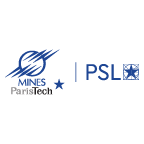
MINES ParisTech
MINES ParisTech, the École des Mines de Paris, is one of the oldest French higher education institutions in engineering. While its inspirational model has not changed, its teaching methods and its research have been anticipating and accompanying its times ever since 1783.
Mines ParisTech is a “Grande ecole” centred on its research activities. it encompasses all fields of scientific knowledge thanks to 15 innovative research centers exploring five major fields. With 260 research academics, 400 doctoral students and 60 post-doctoral students, Mines ParisTech ranks top among the Grandes ecoles for the volume of contractual research.
The institute’s laboratories are partly associated with CnRs, the ecole Polytechnique, inseRM, inRiA, institut Pasteur, etc. Their research, at the intersection of many fields, has led to
the emergence of new disciplines (geostatistics, mathematical morphology and automatic control systems) which are now studied by the scientific community and disseminated throughout industry and the services.
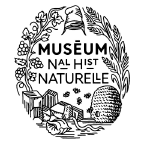
Muséum national d’Histoire naturelle (French National Natural History Museum)
Environmental awareness and protecting the planet lie at the heart of contemporary debates. The Muséum is fully committed to these issues and occupies a position of reference thanks to its varied missions, which include basic and applied research, conservation and the expansion of its collections, education, expertise and the dissemination of knowledge.
The Muséum is a research centre and draws on laboratory work and worldwide expeditions, a wide range of disciplines, outstanding collections and recognised expertise. Its mission is also to share knowledge, which it does through education and dissemination activities. With a clear objective – to make knowledge about the natural world accessible to everyone and to make as many people as possible aware of the importance of protecting our planet.
One of the Muséum’s distinctive features is that its activity is spread over 13 sites throughout France. Its historic heart is situated in Paris, at the Jardin des Plantes, where laboratories, exhibition galleries, a zoo and educational institutions can all be found. Two other key Parisian sites must also be mentioned – the Parc Zoologique de Paris and the Musée de l’Homme (re-opened in October 2015). The remaining sites to be discovered in all four corners of France include two marine stations, an arboretum, a zoo, botanical gardens, a prehistoric excavation site and laboratories.
This historic institution was created in 1635. Originally a royal garden for medicinal purposes and an educational institution, it became the Natural History Muséum in 1793. For four centuries, it has been the source of major scientific discoveries in natural sciences. It has developed over the years thanks to some great minds. Buffon in the 18th century and Daubenton, Lamarck, Geoffroy Saint-Hilaire and Cuvier in the 19th century all provided excellent teaching, extended and studied the collections and were deeply committed to sharing their knowledge with the public.
Today, many different professions exist side by side at the Muséum. Teacher-researchers hunting down knowledge to make scientific progress, taxidermists devoted to giving back power, movement and expression to specimens in the collections, gardeners rising to the challenge of growing plants from different climates in the alpine garden, electricians, carpenters, reception assistants, vets, museologists… all working with the same passion and with one single aim – to further explore and promote nature in order to protect it better.
HAL portal
Open Science Policy
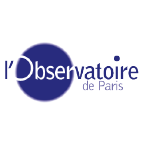
Observatoire de Paris
The Observatoire de Paris (Paris Observatory) is an institution (“Grand Établissement”) that falls within the jurisdiction of the French Ministry for Higher Education, Research and Innovation.
Founded in 1667, it is the largest national research center for astronomy, as it makes for a third of the French research community in astronomy.
The Paris Observatory is made up of five departments, an institute, two scientific services, and joint services. Spread on three campuses – Paris, Meudon and Nançay – its scientific entities are all working in collaboration with CNRS (French National centre for scientific research) and other prestigious French universities. The Observatory also coordinates two external laboratories.
Read more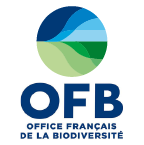
French Biodiversity Agency
The French Biodiversity Agency (Office Français de la Biodiversité or OFB) is a public institution dedicated to the protection and restoration of biodiversity in Metropolitan France and its Overseas Territories, under the supervision of the ministries responsible for Ecology and Agriculture & Food.
The OFB coordinates national information systems on biodiversity, the marine environment, water and the aquatic environment. As such, it collects, structures and makes available to everyone information from numerous public partners and associations. It contributes to the development of knowledge by carrying out or supporting scientific and technical work in partnership with research institutions. In this way, it produces expertise based on the latest scientific findings and the knowledge of its field teams and partners.
Read more
ONERA
ONERA’s mission:
- Developing and guiding research activities in the aerospace field
- Designing, developing and deploying the resources required to conduct this research
- Disseminating, in collaboration with the authorities or organisations responsible for scientific and technical research, the results of said research at national and international levels; promoting their use by the aerospace industry and, where appropriate, facilitating their application outside the aerospace field.
In these different capacities, it is notably tasked with:
- Conducting itself or asking a third party to conduct, on its own initiative or upon request, all the studies and research required by the aerospace industry
- Developing test and calculation facilities for the benefit of aerospace research and industry
- Liaising with French, foreign and international organisations whose activities may contribute to the advancement of aerospace research
- Disseminating and promoting the results obtained, in particular through publications, patents and operating licenses
- Promoting the launching or development of initiatives in favour of aerospace research or industry
- Assisting official organisations and authorities as an expert and upon request
- Contributing, in its field of competence, to the training policy on research and through research
In liaison with the National Centre for Space Studies, it contributes, through its own actions or through agreements, to research and experimental achievements in the space field.
Read more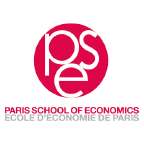
Paris School of Economics
Established in 2006 as a Foundation for Scientific Cooperation (Fondation de Coopération Scientifique) by the CNRS, the EHESS, the École des Ponts ParisTech, the École normale supérieure (ENS-PSL),the INRAE and the University Paris 1 Panthéon-Sorbonne, the Paris School of Economics comprises a community of nearly 150 researchers and 155 doctoral candidates.
The PSE conducts research and teaches economics courses at the highest international level. It actively encourages exchanges between economic analysts and the other social scientists, contributes to economic policy debates and makes its scholarly research accessible via its Partnership Programme and its actions “Economics for everyone”.
Read more
Sciences Po
Sciences Po stands out for combining approaches and confronting different worldviews. This tradition of diversity and multidisciplinary approach makes Sciences Po an active participant in public debate, a forum where thought meets action.
At Sciences Po, the finest researchers in the social sciences engage in continual dialogue with the greatest practitioners. With an academic community of more than 4,000 academics including 2,400 practitioners, the knowledge we transmit to students is nurtured by innovative research and rooted in reality.
HAL Portal
Open Science Policy
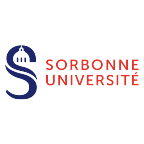
Sorbonne University
HAL Portal
Committment to Open Science

Télécom Paris
Télécom Paris is at the heart of a rich ecosystem. An IMT school, a founding member of the Institut Polytechnique de Paris. The School has been awarded labels for the quality of its training and research and works closely with partner schools.
Read more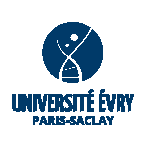
Université Évry Val Paris-Saclay
Université d’Évry is one of 4 new universities created during the 1990’s in Île-de-France.
It strives to rise to challenges through research, and to share new knowledge in order to prepare the youth for upcoming challenges.
Université d’Évry offers education in most fields, except for health studies, from bachelor to doctorate degrees. It also proposes professional education related to the socio-economic environment: the university ends up with the highest number of higher education apprentices in France.
Université d’Évry is a part of Université Paris-Saclay, as an associated member. This group of universities also comprises UVSQ (Université de Versailles Saint-Quentin-en-Yvelines), 4 Grandes Écoles, the Institut des Hautes Études Scientifiques, and 6 national research organisations. It aims to construct a world-class intensive research university, with 15% of French research, and to give access to higher education to the masses. Most diplomas delivered by Université d’Évry are now labelled “Université Paris-Saclay”.
HAL portal
Open Science Policy
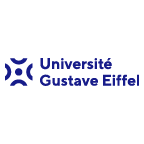
Université Gustave Eiffel
Université Gustave Eiffel is a multidisciplinary university of national importance. It also has the distinction of being the first institution to bring together a research institute, a university, a school of architecture and three engineering schools. By pooling its many strengths in the areas of education and research, Université Gustave Eiffel aims to develop by pursuing a strategy based on complementarity between its founding institutions. By creating better synergies in this way, the university can offer the groups it serves a wider range of expertise. Educating young people, employees or citizens at all levels, providing the whole of society with scientific insights ̶ the ultimate aim of Université Gustave Eiffel is to help raise everyone’s level of qualification.
Université Gustave Eiffel is active in many areas of research. In particular, it accounts for a quarter of French research on the cities of tomorrow and brings together multidisciplinary capabilities to conduct quality research for the benefit of society, offer education tailored to the social and economic world and support public policies.The institution’s main remits are:
- Initial and in-service education, with a strong focus on apprenticeship education.
- Research (fundamental and applied) and innovation.
- Expert appraisals, public policy support and standardisation.
- Openness to society and international cooperation.
HAL portal
Open Science policy
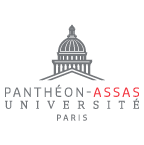
Panthéon-Assas University
Paris-Panthéon-Assas university offers courses in law, political and social sciences (media and communication), management and economics.
The university has a number of research teams in law, political science, economics, management and information and communication sciences. The Centre d’études et de recherches de science administrative and the Institut d’histoire du droit are two research centers affiliated to the CNRS.
Read more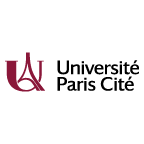
Université Paris Cité
At the heart of a global network of knowledge and innovation, Université Paris Cité is France’s leading multidisciplinary university. It covers a wide range of disciplines, with one of the most comprehensive and ambitious educational offerings available in the world. Université Paris Cité is part of the incarnation of a world city, aware of its place and missions, open to youth and knowledge.
Born in 2019 from the merger of the universities of Paris Diderot, Paris Descartes and Institut de physique du globe de Paris, the ambition of Université Paris Cité is to lead and develop an exceptional potential to meet the challenges of tomorrow’s society.
With a recognized international standing, as well as a strategic portfolio of privileged academic partners throughout the world, it offers its students state-of-the-art, innovative courses in the following fields:
- Arts, Humanities and Languages,
- Human, Economic and Social Sciences,
- Science and Technology,
- Medicine , Dentistry, Pharmacy and Nursing
Université Paris Cité is fully engaged in an experience that brings together thought leadership, pedagogical innovation in education, and excellence in research at the graduate level.
Located on some twenty campuses and research sites, Université Paris Cité has an exceptional heritage mainly located in Paris and its inner suburbs. Between history, prestige and modernity, Université Paris Cité is fully integrated into its urban environment.
HAL portal: https://hal-univ-paris.archives-ouvertes.fr/
Read more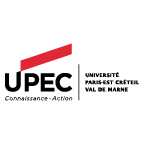
Université Paris-Est Créteil
UPEC is one of the major multidisciplinary and vocational universities within the Paris area.
With 19 sites and its main campus only 20 minutes from the heart of the French capital by subway, its serves a population of over 38,000 students.
A public university, UPEC enjoys governmental and European support. Its diverse partnerships with business organizations enhance its local presence while favoring career opportunities for its students.
In direct contact with its socioeconomic environment, UPEC successfully combines academic and scientific excellence in a spirit of openness.
A major player in the dissemination of academic, scientific and technological culture, UPEC offers over 350 training programs in all disciplines, from technical degrees to doctorates (PhD), including a series of degree programs entirely taught in English. The university is home to 7 faculties, 8 schools and institutes, 33 research centers and an Observatory of Sciences of the Universe.
HAL portal
Open Science Policy
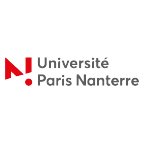
University Paris Nanterre
From its very creation in the 1960s, University Paris Nanterre has dedicated itself to being a new type of institution of higher education. An institution of learning and research whose defining characteristics are its vibrant campus life, educational innovation and scientific research with a social dimension. University Paris Nanterre is located to the west of the greater Paris area, just next to the largest business district in Europe and in a dynamic area full of major urban developments. The Nanterre campus reflects the University’s forward-looking policy with respect to sports and cultural activities, environmental commitment and solidarity actions. In addition to its main campus in Nanterre, the University also has satellite sites in nearby Saint-Cloud and La Défense.
Today University Paris Nanterre has 34,000 students in undergraduate, postgraduate and professional continuing education with more than 20% of the student body from a foreign country. There are over 1,000 research professors and researchers in all disciplines of social and human sciences (law, economics, management, arts, humanities and languages, philosophy, linguistics, information and communication sciences, psychology and education, history, archaeology, anthropology, sociology, geography) as well as in sports sciences and physical education, mathematics, computer science and engineering.
University Paris Nanterre is a member of an Association of Higher Education and Research Institutions known as Université Paris Lumières. The University of Paris 8 and the CNRS research institute also belong to this prestigious grouping of institutions of higher learning. The INS-HEA (special educational needs and disability studies) and ENS Louis Lumière (National Film, Photography & Sound Engineering School) as well as numerous cultural institutions of both French and international renown (Louvre Museum, National Library of France, Quai Branly Museum, Centre Georges Pompidou, National Archives, INA – National Audiovisual Institute, History and Immigration Museum, etc. ) are also part of this exceptional educational initiative. This association is one of the leading educational and research bodies in France in the field of social and human sciences.
HAL portal
Open Science policy
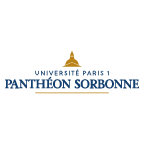
Université Paris 1 Panthéon-Sorbonne
At the heart of Paris Latin Quarter, the Université Paris 1 Panthéon-Sorbonne combines the glorious past of a college founded during the 13th century by Robert de Sorbon, with a pioneering multidisciplinary programme. Ever since 1970, its mission of education and research has been gravitating around three scientific domains: humanities and arts, law and political science, and economic and management sciences.
Established on 25 locations across Paris and Île-de-France, the Université Paris 1 Panthéon-Sorbonne guides over 43.000 students every year. The university is part of an international relations network all around the globe; it plays a major role in the education of researchers, professors, magistrates, lawyers, executives for the private sector or the public administration. Its moto: Omnibus sapientia, unicuique excellentia – Knowledge for all, excellence for every one.
With a 800 years history and 50 years of excellence, the Université Paris 1 Panthéon-Sorbonne is now the greatest university specialised in humanities and social sciences in France.
HAL portal
Open Science Policy
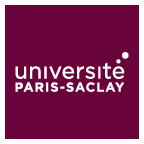
Université Paris-Saclay
Université Paris-Saclay offers a comprehensive and varied range of Undergraduate, Master’s and PhD degrees, renowned internationally thanks to the University’s reputation for research excellence and the commitment of its academic staff. The University’s constituent faculties, institutes and component institutions all contribute to the curricula with cutting-edge specialised courses in Science and Engineering, Life Sciences and Health, and Social Sciences and Humanities.
The University shares 275 laboratories with the French Alternative Energies and Atomic Energy Commission (CEA), the French National Centre for Scientific Research (CNRS), the Institut des Hautes Etudes Scientifiques (IHES), the French National Research Institute for Agriculture, Food and Environment (INRAE), the National Institute for Research in Digital Science and Technology (INRIA), the French National Institute of Health and Medical Research (INSERM) and the French Aerospace Lab (ONERA). Université Paris-Saclay currently represents 13% of France’s research potential.
Located in the south of Paris on vast sites that stretch across Paris, Orsay, Évry and Versailles, Université Paris-Saclay benefits from a strategic geographical and socio-economic position that is strengthened by its international visibility.
Université Paris-Saclay is nested in a protected natural area close to Paris, at the very heart of a dynamic economic hub.
With 48,000 students, 9,000 researchers and lecturers, and 11,000 technical and administrative staff members, Université Paris-Saclay is a driving force for the development of its local area and one of France’s leading institutions.
HAL portal
Open Science Policy
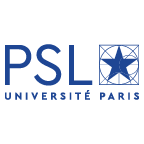
Université Paris Sciences & Lettres
Located in the heart of Paris, PSL (Paris Sciences & Lettres) combines excellence and diversity to inspire dialog among and between all areas of knowledge, innovation, and creativity in the Arts, Engineering, Sciences, Humanities and Social Science.
PSL’s academic community makes the best of its 140 laboratories to design ambitious, formative, innovative and cross-disciplinary research programs.
PSL is selective and committed to equal opportunity, PSL Université chooses students globally for their talents to offer them research-based education and guarantees a low student to teacher ratio as well as a rich campus life and exciting career paths.
With 2,900 researchers and 17,000 students, PSL’s strengths are comparable to those of the world’s top universities. As a university of manageable size, PSL readily produces actionable results (some 200 research projects and 100 new education programs have been launched since 2011), provides the ideal environment for interdisciplinarity, and prioritizes high student-faculty ratios.
Read more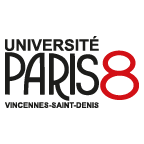
Université Paris 8 – Vincennes – Saint-Denis
Ever since its creation as an Experiment Centre in Vincennes in 1969, and its establishment in Saint-Denis later in 1980, Université Paris 8 has been a major education and research center for humanities in Île-de-France. With its specialities in Arts, Litterature, Humanities and Social Sciences, Université Paris 8 has always led its students towards a better understanding of today’s world, all the while giving them tools to integrate socially.
To this end, Université Paris 8 offers research perspectives in scientific fields little represented in French higher education and research: psychoanalysis, geopolitics, cinema, plastic arts, gender studies…
Paris 8 also stands out through the strong ties it maintains between research and education, thanks to educational methods adapting to each population and offering education to each and every one, at any age.
Read more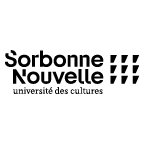
Université Sorbonne Nouvelle
Founded in 1970, Université Sorbonne Nouvelle stems from the former Litterature faculty of University of Paris.
At the heart of Latin Quarter, and through Paris 5th arrondissement, Sorbonne Nouvelle offers several multidisciplinary high level education in Languages, Litterature, Arts and Media, Humanities and Social Sciences.
These trainings offer a variety of job prospects: teaching, research, publishing, resource management, performing arts (comedy, cinema, audiovisual), communication, journalism, coordination of cultural projects, translation and interpretation, in Europe or worldwide. Education at Sorbonne Nouvelle also relies on reputed research in modern humanities.
HAL portal
Open Science policy